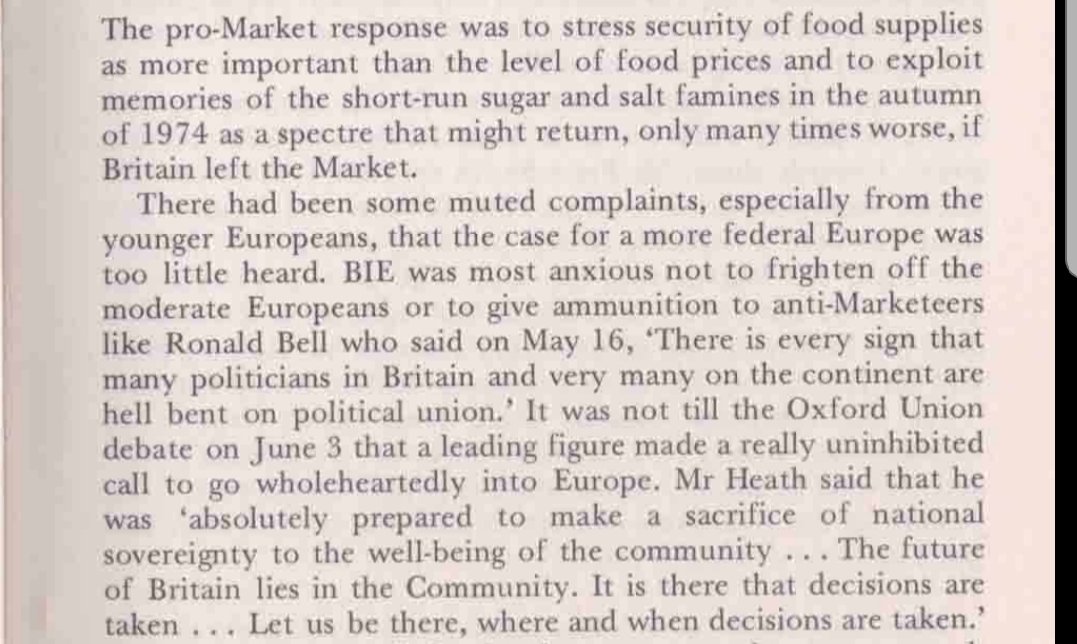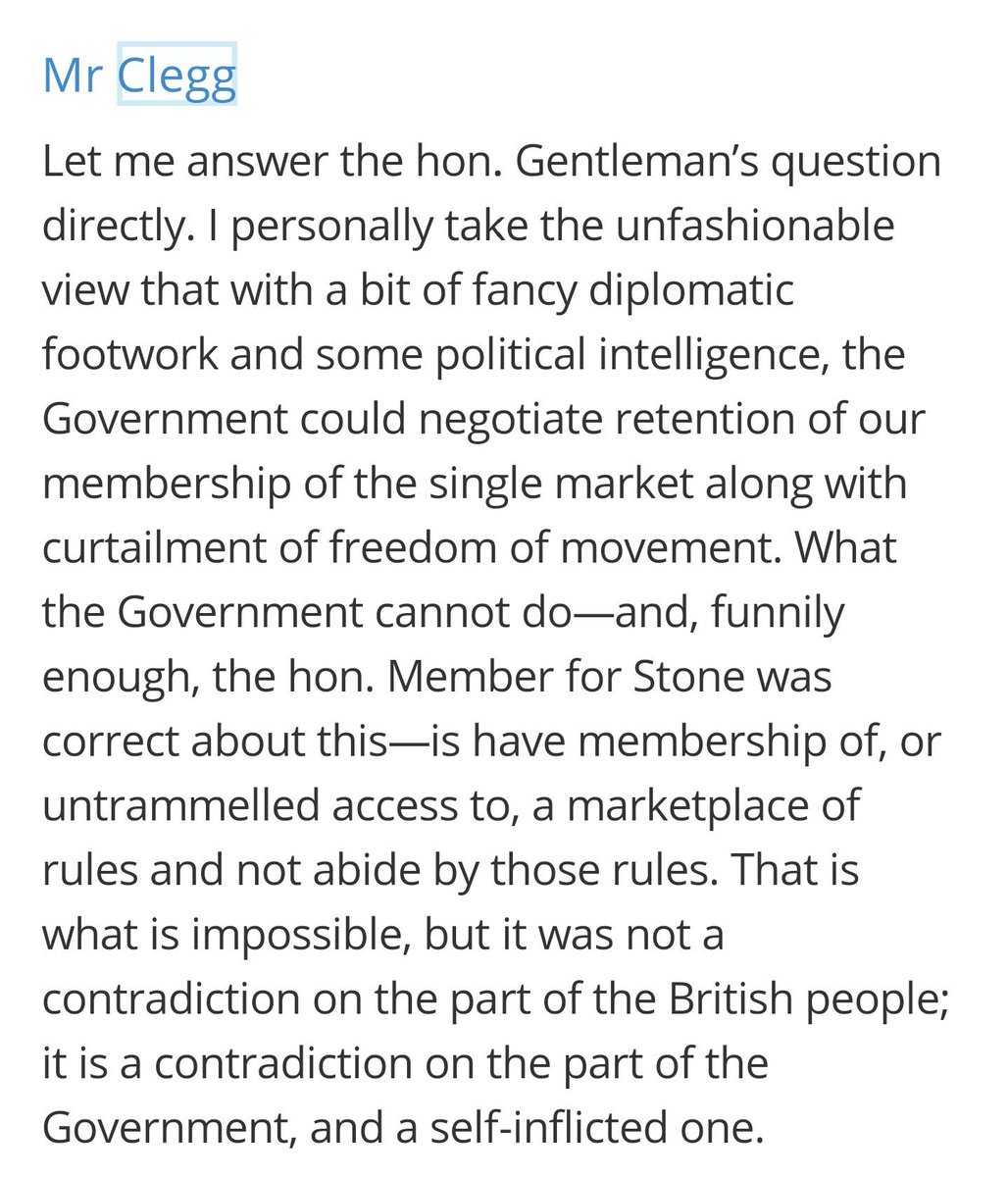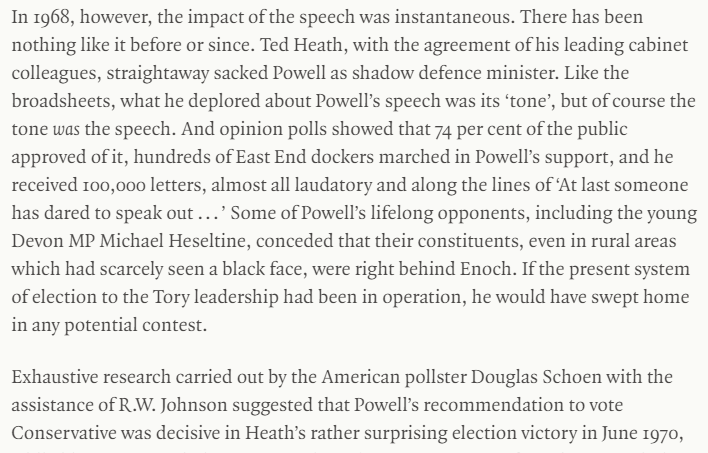
A hypothesis on what was wrong with UK/EU relations:
The shape & meaning of the EU/EEC and of UK-EU relations were and are in the eye of the beholder.
While this is true to some extent for life in general, the EU and UK/EU relationship went further in this regard. Thread.... /1
The shape & meaning of the EU/EEC and of UK-EU relations were and are in the eye of the beholder.
While this is true to some extent for life in general, the EU and UK/EU relationship went further in this regard. Thread.... /1
If, as a UK citizen in 1975, you wanted to show that the EEC and its members were heading for full political union, you could (and can) do so. There's plenty on the historic record suggesting this is exactly what would happen. You could then agree or disagree with that goal. /2
May I commend @EmporersNewC 's many threads on how the goal of political union was always in plain sight. /3
But if, as a UK citizen in 1975, you wanted to argue that the EEC was "largely about trade", you could (and can still) do so. There's plenty of historic material suggesting that this is what it would be about. You could then agree or disagree with that goal. /4
To take one example: a televised debate on ITV in 1975 between Edward Heath and Michael Foot. Watching it, one got little sense from Heath that there was any risk of anything from the EEC. It was all going to be very inter-governmental. /5
The same is true later in the interview. /6
Butler and Kitzinger's review of the 1975 referendum commented that the future state-like aspects of the EEC were played down during the 'Britain in Europe' campaign (in favour of economic concerns) so as not to frighten moderates. /7 

And yet immediately after this passage, Butler and Kitzinger acknowledge that Heath was very open about the political nature of the EEC and of being 'absolutely prepared to make a sacrifice of national sovereignty'.
/8
/8

A British voter could choose to see what they wanted to see.
/9
/9
Another aspect is that back in 1975, the future of Europe was still to be written. Voters couldn't be sure how it would play out. There were reasons (not least the French & now British) to believe that the EEC would stay a very limited inter-govt enterprise with vetos aplenty /10
Again, one could see what one wanted to see. And both "visions" - of a "mere trading arrangement" and of a politically integrated "United States of Europe" - could be 'seen'. /11
I believe this goes some way to explaining the Brexiter complaint that the EEC was "mis-sold" as merely a trade arrangement. Arguably mis-sold by themselves to themselves - remember that some senior Brexiters were Yes voters in 1975. /12
But it has to be said that such alleged historic mis-selling has also been grossly inflated and lied about in recent years. It's almost like they want to blame someone else... /13
Fast forward through the years from 1975 to 1988, and for the average bored UK voter the EEC/EC was about the CAP, butter mountains, money paid to the EEC, and then the single market. So still largely food and economics. /14
Until a combination of Jacques Delors and Margaret Thatcher (a 1975 Yes voter) started sending out warning signals that this EEC/EC thing was indeed about something more than just food and trade. /15
Since then, and in all my time following this subject, the pro-EU lobby in Britain has mostly played down the political union aspects of the EU and played up the economics. This extended into the "Stronger In" campaign of 2016. By then, perhaps they could do no other. /16
That is not to say Remainers are responsible for Brexit - clearly they are not. But the ambiguous view of what the EU is and of UK-EU relations has been there throughout and has run through more than just Brexiters. See Clegg and Blair's post-ref views on free movement /17 

Such Remainer - no, British - views prompted Sir Ivan Rogers to comment in 2018 that "It still amazes me that virtually the entire British political class still thinks that it’s free movement obsessions are about to be shared in the 27. They aren't." /18
So it seems the British in general choose to see what they want to see where the EU is concerned. And no doubt there's an element of self-deception involved, perhaps born of an inflated view of our own power. /19
Will this now change? No, it carries on in different guises: Brexiters choose to see EU evil in everything that now happens. Many FBPE-types choose to see the opposite. Sometimes justified, sometimes not.
But the Brexiter penchant for inflating and outright lying continues. /20
But the Brexiter penchant for inflating and outright lying continues. /20
Where does all of this come from? Well, the EU is and has been something of an enigma - a constantly developing story. But if that's all it was, other member states would go through the same contortions. /21
No, this is something very British. And while it may seem hackneyed, one cannot shake off the fact of World War 2 which is *much* bigger in Brexiter thinking than empire, and the fact that Britain (a) was not overrun by fascism, and (b) "won". /22
Despite that WW2 victory, Britain has been in relative decline almost ever since. There are those who feel the victor has become a victim, one might say a formerly-heroic victim, now with designs on being "great again". Such people's own psychologies reflect this. /23
If you think about it hard enough, it is a historic tragedy. And those who feel it mourn and some get angry about this loss. From one of the three big world powers in 1945 to where we are now - increasingly just a medium-sized state in a changed world. /24
For the angry people, the EU is the burial place of Britain as a great power; a daily reminder of loss. And now that we as a country are 'lost', you can be sure that such folks' resentment towards the EU will only deepen.
They will choose to see what they want to see.
/ends
They will choose to see what they want to see.
/ends
Postscript: I'm a bit disappointed in this thread to be honest - I had higher hopes of it and its general theme but I spent way too much time on it so.....well, here it is.
• • •
Missing some Tweet in this thread? You can try to
force a refresh





